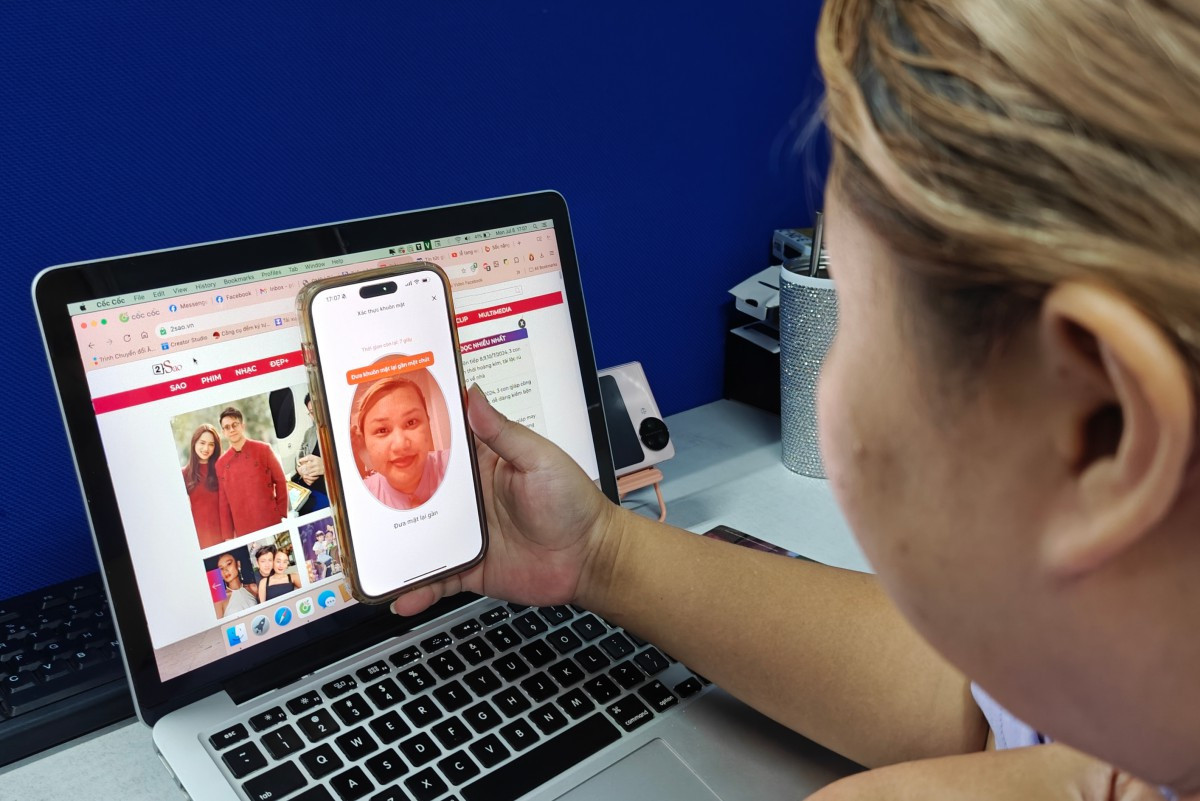
With the introduction of Decision 2345/QD-NHNN, starting from July 1, 2024, users transferring over 10 million VND online will need to authenticate their identity through facial recognition. This measure aims to curb the buying and renting of bank accounts.
According to Mr. Vu Ngoc Son, Technical Director of the Vietnam National Cyber Security Technology Joint Stock Company (NCS), the implementation of biometric authentication for transactions over 10 million VND will limit "junk" and fake accounts. If a victim transfers money to a fraudulent account, the funds remain there as the fraudster cannot transfer them further. This tool is highly effective in combating online fraud by eliminating most "junk" bank accounts.
At the seminar "Enhancing Security for Cashless Transactions" recently held in Ho Chi Minh City, Mr. Ngo Tuan Anh, CEO of SCS Cybersecurity Company, highlighted that current fraud cases still occur due to rented and impersonated bank accounts. He noted that fraudsters often go to remote areas, borrowing citizen ID cards from market vendors to open accounts, which they then use. Decision 2345, requiring facial recognition for transfers, helps prevent the use of these "borrowed" accounts.
Mr. Pham Tien Dung, Deputy Governor of the State Bank of Vietnam, emphasized that Decision 2345 mandates account holders to authenticate their identity via facial recognition for transactions, rendering rented accounts unusable in such cases.
At the Government's monthly press conference on July 6, Deputy Governor Pham Tien Dung stated that Decision 2345 aims primarily to "clean up" bank accounts. With citizens now using chip-embedded ID cards, unlike the previous system of various ID forms susceptible to forgery, this decision ensures greater security. Transactions over 10 million VND now require facial authentication.
When asked about the absolute security of this solution, Mr. Pham Tien Dung acknowledged that no solution is entirely foolproof. Criminals will always find new methods. Therefore, banks must continuously educate and alert the public about new fraud tactics.
Mr. Vu Ngoc Son noted that despite Decision 2345's effectiveness in eliminating most "junk" accounts, fraudsters might still hire individuals to create accounts and transfer money on their behalf. Thus, alongside enhanced biometric authentication, there is a need for increased public awareness and legal education to prevent people from inadvertently aiding fraudsters.
An expert in payment systems echoed this sentiment, pointing out that fraudsters will devise new schemes in response to regulatory measures. Recently, scammers have impersonated bank staff to assist individuals in setting up biometric authentication, subsequently taking control of their accounts. Therefore, continuous public education is crucial to improve awareness and resilience against fraud.
Le My